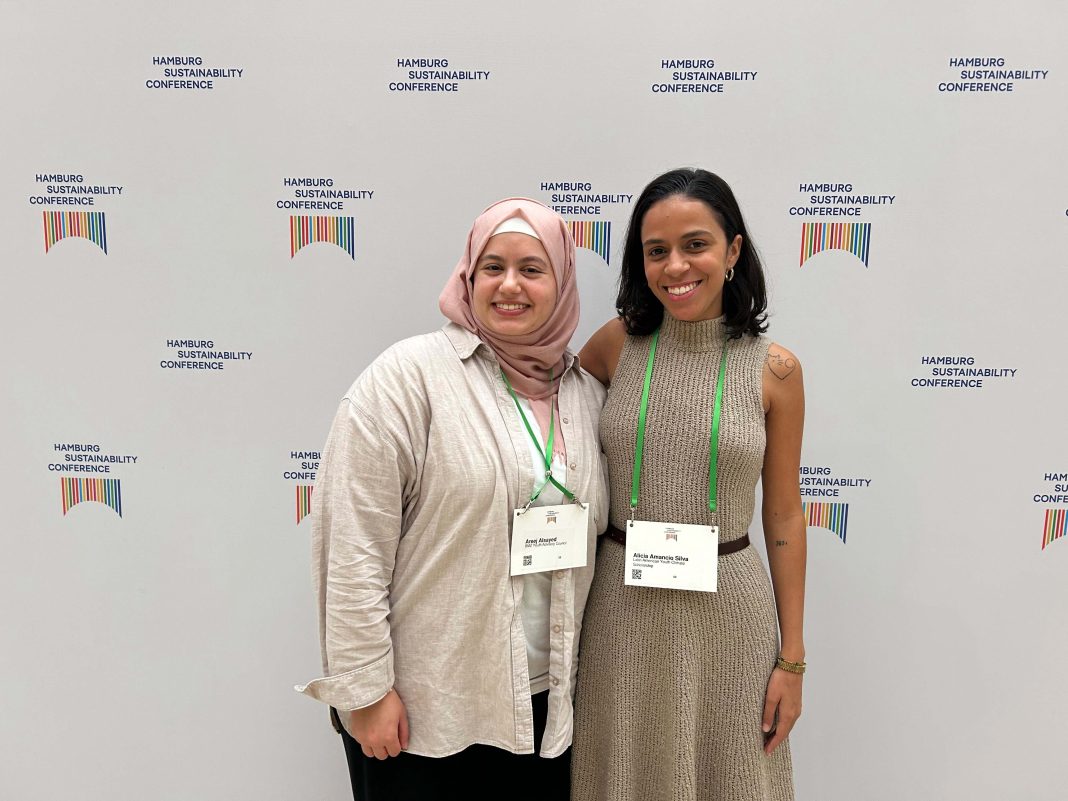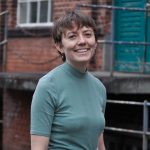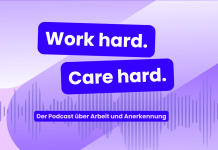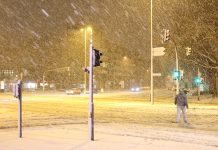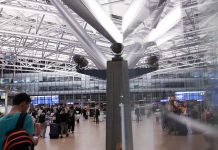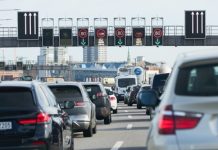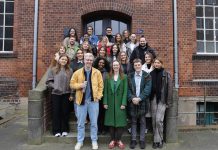Climate justice needs more than words – it requires a new system. In this interview, activists Alicia Amancio and Areej Alsayed talk about racism in the climate movement, necessary changes and what matters at the end.
Hier klicken für die deutsche Version
FINK.HAMBURG: What is necessary to reach environmental justice?
Alicia Amancio: A system change. There is no climate justice in this capitalist system where profit comes before everyone and everything. There will be no climate justice if we don’t have real conversations about the colonial past of the global North. They haven’t paid operations for the colonial past yet.
Areej Alsayed: It is not only about the responsibility for the past, but also for the present. There are still neocolonial structures in development cooperations.
Also the climate movement in Germany and climate spaces are very white. When I was with other BIPoCs in Lützerath we didn’t feel safe and we had to leave the space within two hours.
„the situation here in Germany is shitty“
Why is the situation in the German climate movement difficult?
Alsayed: It was a very white environment in which the people were talking about climate justice. I had a workshop about climate action and colonialism, and the German media showed white climate activists in the news. But activists of colour didn’t get any attention. Because of the structure, the racism and discrimination in the climate movement, the situation here in Germany is shitty.
Alicia Amancio is a Youth Activist from Brazil. She attended her first climate conference with 17 and noticed: This is not inclusive. Because of that she founded the Latin American Youth Climate Scholarship.
Areej Alsayed graduated from high school in 2024 and is now doing a gap year before she wants to study medicine. The activist is part of the Youth Advisory Council of the Federal Ministry for Economic Cooperation and Development (BMZ) and a member of the YoupaN youth forum.
We are at the Hamburg Sustainability Conference right now. Can you guess how many climate conferences you have attended?
Amancio: 20 to 25. I attended eight COPs (editor’s note: the UN climate conference) so far.
Alsayed: Maybe 10 conferences? I did not attend any COP yet. That’s one of my goals.
That is a lot for such a young age! There is a lot of critique regarding climate conferences. The climate scientist Rockström, for example, said that the conferences need to become “more inclusive, more attractive and more effective”. How would you evaluate the impact of such conferences?
Amancio: The COPs are made for parties and countries to negotiate. That’s the main goal. Over the last ten years COP has become these circles where we have 60,000 people attending and I would say 55,000 have no idea what’s going on in the negotiations, because there are so many side events.
We need better representation of global South. Founding is a huge issue. So, I fully support that claim. But also not everyone needs to be at COP.
Alsayed: Last year I attended the Global Refugee Forum. And I had the feeling that there were two parallel worlds. One where the countries representatives were. And one where people with forced placement backgrounds where.
The representative of the countries come and hold similar speeches without real actions. I want to see the action, but also cooperation with the people who are really affected from climate change and all other topics.
Amancio: It would be amazing, right?
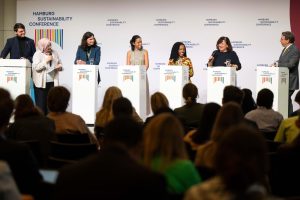
Could you tell a little bit more about the scholarship you founded? What is it about?
Amancio: When I attended my first COP with 17, I was very lost. I did not speak any English, so I couldn’t really communicate and I didn’t understand the negotiations. It took me three solid years to understand where I was and what my role was in that. If we go to the negotiation rooms, we don’t see young people – at least from Latin America.
I saw that for years, we had the same faces from Europe and from the United States of America speaking in all the panels, saying “I’m representing young people from all over the world”. They have no idea what it is like to be in the global South, fighting the climate crisis. It was like they were stealing our narrative.
And what do you do with your scholarship?
Amancio: We open applications every year. We select young people from black and indigenous communities from all over Latin America. We help them to get their passports and fund their participations to both the SB’s (editor’s note: conference in Bonn) and COP.
And we offer them any kind of support and tools that they need. So, they are trained to understand the negotiations and to advocate for themselves in that space.
„We are young people. This shouldn’t be our responsibility“
Often old people decide. The average age in the German parliament is 47 years. However, young people suffer more of the consequences of lacking sustainability. How can we listen more to younger voices?
Amancio: We need to put more money into youth led initiatives, so we are independent of the structures that don’t care about us.
Alsayed: You also have to provide them with information. I attended the Bonn Climate Change conference last year. When I was in the negotiations room I had the feeling that I couldn’t understand what was happening around me.
It is not enough to have more young people. The question should be “Do you provide them with access to information?”. Including young people should start from the beginning of every process till the end. And during the implementation of action plans!
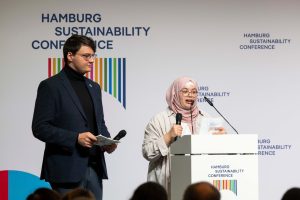
Areej Alsayed you have contributed to a study that showed that less young people are engaged in climate protection. What do you think is the reason for that?
Alsayed: Young people are really busy with other stuff and with the other crises that we have – like Covid and the wars. The question is also “Am I doing something meaningful?”. The feeling, if what I am doing really changes something or if I go to a demonstration, but no one will report. So I think media has a big role.
Education plays another big role. In schools we always talk about ecological problems like climate change. And learn stuff like “we have to do something before it’s too late”. But it’s not like the effects of climate change are after us. Some other countries and people are already suffering from climate change.
Amancio: There is this assumption that we do it for free, because we care about it. I am so against volunteer work for young people. Of course we’re going to do the best that we can. But there’s just so many more factors, like how do we pay our bills?
We are young people. This shouldn’t be our responsibility. This shouldn’t be our task. And if it is – because we have the solutions – then pay us to do it.
„Do it for yourself. Do it for the people that you love“
What would be your one message, if you could read every single person on the planet?
Alsayed: My message to everyone: peace. We don’t need conflicts. Just have peace in the world and see how we can move forward as a global community with solidarity. How we shape the world together.
Amancio: I feel like we are always expecting someone to save us. It’s like we need an organisation or a government program as inspiration. Do it for yourself. Do it for the people that you love. Do it for the places that you love, like when they go hiking or when they go outdoors. It’s the world. It’s so beautiful. Just be selfish and do it for yourself and for the things that you love. Because that’s what matters in the end.
Jana Rogmann, Jahrgang 2000, aus Kevelaer, ist den Berliner Marathon schon einmal in unter zwei Stunden gelaufen - allerdings auf acht Rollen: im Sportunterricht gab es Inline-Skating als Wahlfach. Nach einem sozialen Jahr an einer Schule in Bolivien war sie sicher, dass sie nicht Lehramt studieren würde. Sie entschied sich für Komparatistik und English Studies in Bonn, arbeitete bei der WDR-Lokalzeit in der Online-Redaktion und moderierte eine Musiksendung beim Uni-Radio. Einzige musikalische Regel: alles außer Schlager. In ihrer Kolumne in der Rheinischen Post schrieb sie mal über “Uni in der Handtasche” in Zeiten der Pandemie, mal über ihr abgeschnittenes Haar. Seit einem Praktikum beim KiKA kann sie perfekt Kinderstimmen imitieren, will aber lieber Journalismus für Erwachsene machen. Kürzel: rog

